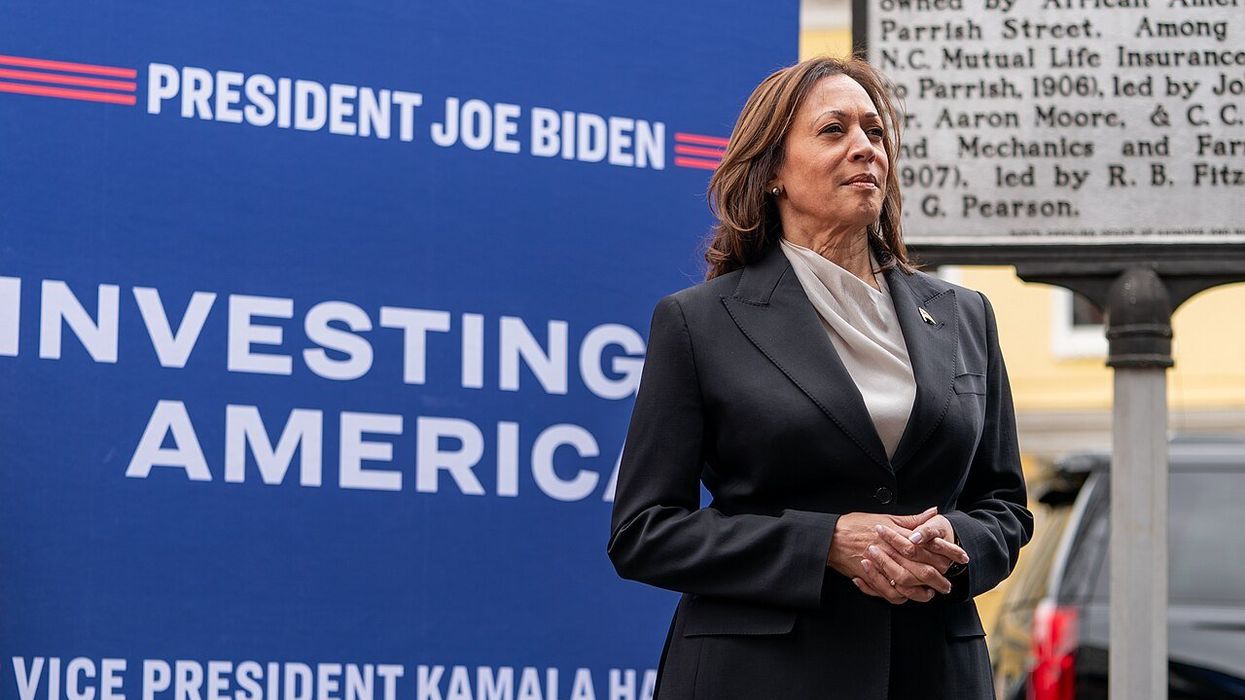Kamala Harris may have just accidentally revealed her VP shortlist

Vice President Kamala Harris at the Ella West Gallery in Durham, North Carolina on March 1 (Creative Commons)
July 31, 2024 | 11:11AM ETBank
Presumptive 2024 Democratic presidential nominee Kamala Harris is facing a Wednesday, August 7 deadline for picking a running mate. But an announcement could come any day now, and NBC News Philadelphia reports that the running mate — whoever it turns out to be — will appear with her at a major campaign rally in Philly on August 6.
The fact that Harris has chosen Philly for the event has fueled speculation that her running mate will be Pennsylvania Gov. Josh Shapiro, who is reportedly on her short list. Others reportedly include Sen. Mark Kelly (D-Arizona) and Minnesota Gov. Tim Walz.
Axios' Hans Nichols reports that Harris' campaign "is pressing Wall Street donors to cut their checks as soon as possible, citing a financial rule that bars contributions to tickets featuring a sitting governor, according to people familiar with the matter."
READ MORE: 'Weird' J.D. Vance may be 'one of the best things' Trump ever 'did for Dems'
"The urgency of the requests has led some donors to conclude that Harris plans to pick a governor — and not a senator, like Mark Kelly of Arizona — to be her running mate," Nichols explains. "If the campaign signals are being correctly interpreted, that would narrow the veepstakes down to Kentucky Gov. Andy Beshear, Pennsylvania Gov. Josh Shapiro, and Minnesota Gov. Tim Walz."
Nichols notes that "some donors in the financial services and investment industry think they have until" Sunday, August 4, "to get their contributions in."
"Harris told reporters on Tuesday that she has not made a final decision," Nichols notes. "Kelly is the only senator currently seen as a frontrunner."
Nichols points out that the U.S. Securities and Exchange Commission (SEC) "has a strict rule for some employees at financial services firms regulating their donations to campaigns for state office, like a governor's race."
READ MORE: What Project 2025 shutting down 'policy' operations actually means: expert
"The goal is to snuff out 'pay-to-play' schemes, where donors in the investing industry might seek to curry favor with the state officials who control the billions of dollars in state pension funds," Nichols observes. "The restrictions generally apply to certain employees of financial firms — including some banks and asset managers — that do business with a state or a locality."
READ MORE: Why Jack Smith's Trump indictments aren't 'over — by a long shot': legal expert
Read Hans Nichols' full Axios article at this link.